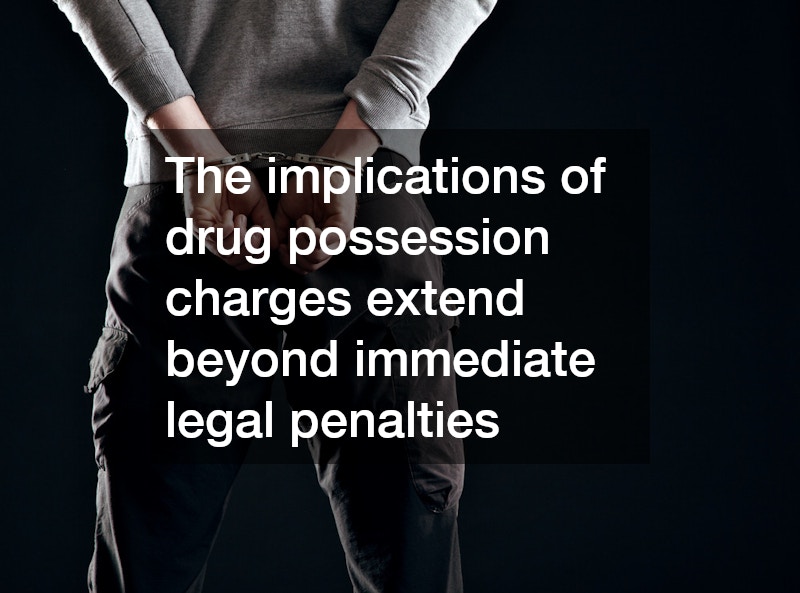Drug possession laws vary significantly across different states and countries, reflecting diverse legal frameworks and societal attitudes towards controlled substances. The statutory definitions often distinguish between “simple possession” and “possession with intent to distribute,” with penalties being much more severe for the latter. Being caught with even a small amount of an illegal drug can result in criminal charges, depending on local regulations.
In recent years, the legal landscape surrounding drug possession has evolved, notably with the decriminalization and legalization of marijuana in several jurisdictions. Despite these changes, federal laws still classify marijuana as a Schedule I drug, which can complicate legal proceedings.
This dual legal status has led to confusion among the public and among those charged with possession.
Understanding the nuances of drug possession charges requires consulting with experts, such as marijuana lawyers, who specialize in navigating this complex area of law. Their expertise is particularly valuable for individuals facing charges in areas where marijuana is still widely restricted or illegal. Furthermore, marijuana lawyers can offer guidance on potential defenses and outcomes in possession cases.
The Consequences of Drug Possession Charges
The implications of drug possession charges extend beyond immediate legal penalties, affecting various aspects of a person’s life. Convictions can lead to severe outcomes, such as fines, probation, or even incarceration, depending on the quantity and type of substance involved. For many, the prospect of having a criminal record is a significant concern, as it can hinder future employment opportunities and other aspects of their lives.
Beyond the courtroom, a possession conviction can also impact personal relationships and mental health. The social stigma attached to such charges can result in strained familial ties and conflicts with friends and colleagues. Additionally, the stress of legal proceedings and potential penalties can lead to anxiety, depression, or other mental health issues.
Because of these far-reaching consequences, it’s crucial for those facing possession charges to seek professional legal assistance. Marijuana lawyers play an integral role in these situations, offering a better chance at minimizing the legal and personal damage. By understanding the full scope of potential consequences, individuals can better prepare and strategize the most effective response with their legal counsel.
Legal Defenses to Drug Possession Charges
When facing drug possession charges, several legal defenses can be employed, depending on the specifics of the case. One common defense is challenging the legality of the search and seizure that led to the discovery of the drugs. If the police conducted an illegal search without a warrant or probable cause, any evidence obtained might be inadmissible in court.
Another defense may involve the concept of possession itself. For a conviction, the prosecution must prove that the defendant knowingly possessed the illicit substance. If there is insufficient evidence to demonstrate that the defendant was aware of the drug’s presence or its illegal nature, this defense could be effective.
Engaging qualified marijuana lawyers is critical when building a defense, as they possess the knowledge needed to explore these and other options. Their experience in handling such cases often proves invaluable in challenging the charges. Additionally, they can help negotiate plea deals or lesser charges when potential defenses do not fully exonerate the defendant.
The Role of Marijuana Attorneys
Marijuana lawyers serve as vital allies for defendants in navigating the often confusing landscape of drug possession laws. These professionals are well-versed in the nuances of drug-related statutes and can provide valuable insights and guidance. Specifically, they can clarify the legal complexities that arise from differing state and federal marijuana regulations.
By working closely with a marijuana lawyer, defendants can better understand their rights and the legal processes they are involved in. Lawyers can help assess the strengths and weaknesses of the prosecution’s case and advise on the best strategic approach. Moreover, marijuana lawyers often possess negotiation skills that can lead to more favorable outcomes, such as reduced charges or alternative sentencing options.
Ultimately, seeking the expertise of a marijuana lawyer is a strategic decision that can dramatically affect the outcome of a drug possession case. Their involvement can make a significant difference in minimizing the legal and personal fallout from such charges. As society continues to evolve its views on drug policy, these lawyers will remain instrumental in ensuring fair treatment for their clients.
Drug possession charges are a serious legal issue with potentially long-lasting repercussions. Navigating these charges requires a comprehensive understanding of the law, potential defenses, and the consequences at stake. Engaging a marijuana lawyer is often a prudent step to effectively manage and mitigate the impact of such charges.
As attitudes towards drugs, particularly marijuana, continue to shift, the legal system remains a challenging arena for those accused of possession. Understanding the seriousness of these charges is the first step toward addressing them effectively and moving forward. Whether facing minor or major charges, the assistance of a knowledgeable attorney is invaluable in navigating this complex legal landscape.
By considering the legal implications, potential defenses, and support available through specialized lawyers, individuals can better protect their rights and future. With careful guidance and informed strategies, those facing drug possession charges can work toward a more favorable resolution. In many cases, a proactive and informed approach may significantly change the outcome of their cases.

